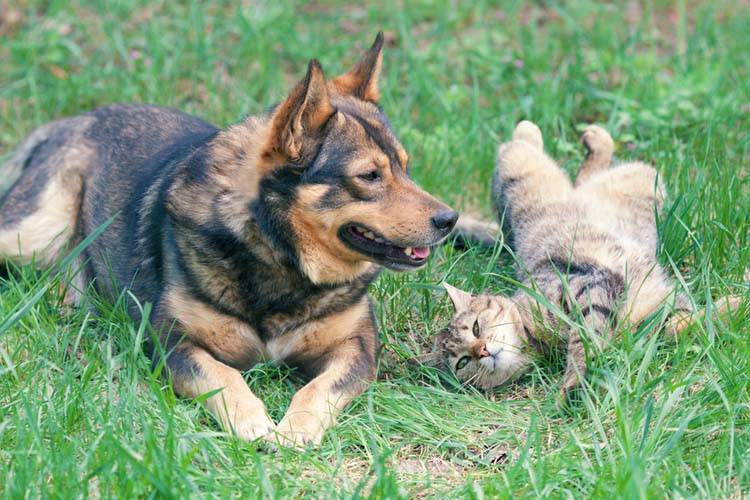Garden Plants Toxic to Pets
By Karen Doane, RVT
Spring is here and it’s time to plant a garden. Many of us can’t wait to enjoy the abundance of homegrown fruits and veggies. However, did you know among that lush greenery, there could be dangers hiding in plain sight?
Some plants that we eat without a second thought can be bad news for our dogs and cats. Did you know that members of the onion family are a no-no? Or that potatoes, tomatoes and peppers have toxic leaves and stems. Or some fruits have cyanide hidden inside their pits.
It’s worth noting we see more issues with dogs than cats simply due to the choosiness of cats and the chewiness of dogs. With a strong garden fence and a little diligence, we can avoid possible issues and enjoy the bounty of the season worry-free.
Here are some common garden plants and fruit trees poisonous to pets, and tips to keep your pet safe.
RELATED: Backyard Dangers for Dogs
List of Plants Poisonous to Pets
Allium
The Allium genus includes garlic, onions, shallots, scallions, chives and leeks. These common kitchen staples can be real trouble for dogs and cats. If ingested in large quantities, they can cause severe anemia in both species. It can take a few days for symptoms to appear, but your normally active pet will become lethargic and may have to catch his breath often. Veterinary care is a must, as your pet might require a blood transfusion to save his life.
Solanaceae
The Solanaceae (nightshade family) includes such garden favorites as tomatoes, potatoes, and chili and bell peppers, as well as tomatillos and the less-commonly grown potato, chayote squash. These plants produce toxic alkaloids, which are found in the leaves, stems and green unripe fruit. Toxic effects in dogs and cats can be as minimal as gastrointestinal upset to as serious as central nervous system (brain and nerve) and cardiac (heart) issues.
Prunus
The Prunus genus (stone fruit) includes peaches, plums, nectarines, cherries, apricots and almonds. Present in these fruits’ pits is a cyanide-containing compound. Dogs who chew open the pits and ingest the kernel inside could experience severe gastrointestinal upset and pain, and in some cases ingestion can be fatal. In addition, if the pet is small enough and the pit is large enough, there is the rare possibility of it causing an intestinal blockage.
Persea Americana (Avocado)
The avocado belongs to the laurel family (Lauraceae). Ingesting large quantities of the fruit can cause diarrhea and vomiting in dogs and cats, but the symptoms are usually not too severe. Again, the pit might rarely be the cause of intestinal obstruction if it’s too large to pass through a dog’s system. However, birds, rodents and horses beware. Eating any part of the avocado plant can lead to death due to heart and breathing issues.
RELATED: Roundworms in Cats and Dogs
Other Fruits and Vegetables to Be Aware Of
While the reason is not yet clear, the fact that even a small amount of grapes (and raisins) can cause sudden kidney failure in dogs is well known. The effect can be quite sudden and, without veterinary attention, most likely fatal.
Rhubarb contains oxalic acid, a toxin which causes seizures, coma and death when ingested.
Citrus fruits, such as oranges, grapefruits, lemons and limes, contain a substance that causes gastrointestinal upset in dogs and cats. This is not usually a life-threatening issue, however.
Lastly, a word of caution to the dog-owning, home-brew hobbyist. Hops (even after processing) can cause dogs to suffer from a very high fever as well as muscle tremors and/or seizures. If the fever is not reduced quickly, the dog could die due to failure of many organ systems. Many dogs love the taste of beer so you should be extra careful about the growing and brewing process, including safe disposal afterwards.
With the knowledge you need to keep your pet healthy and safe, your garden can safely provide you with fresh, healthy produce. Let’s get growing.
READ MORE: Skin Allergy Treatment





